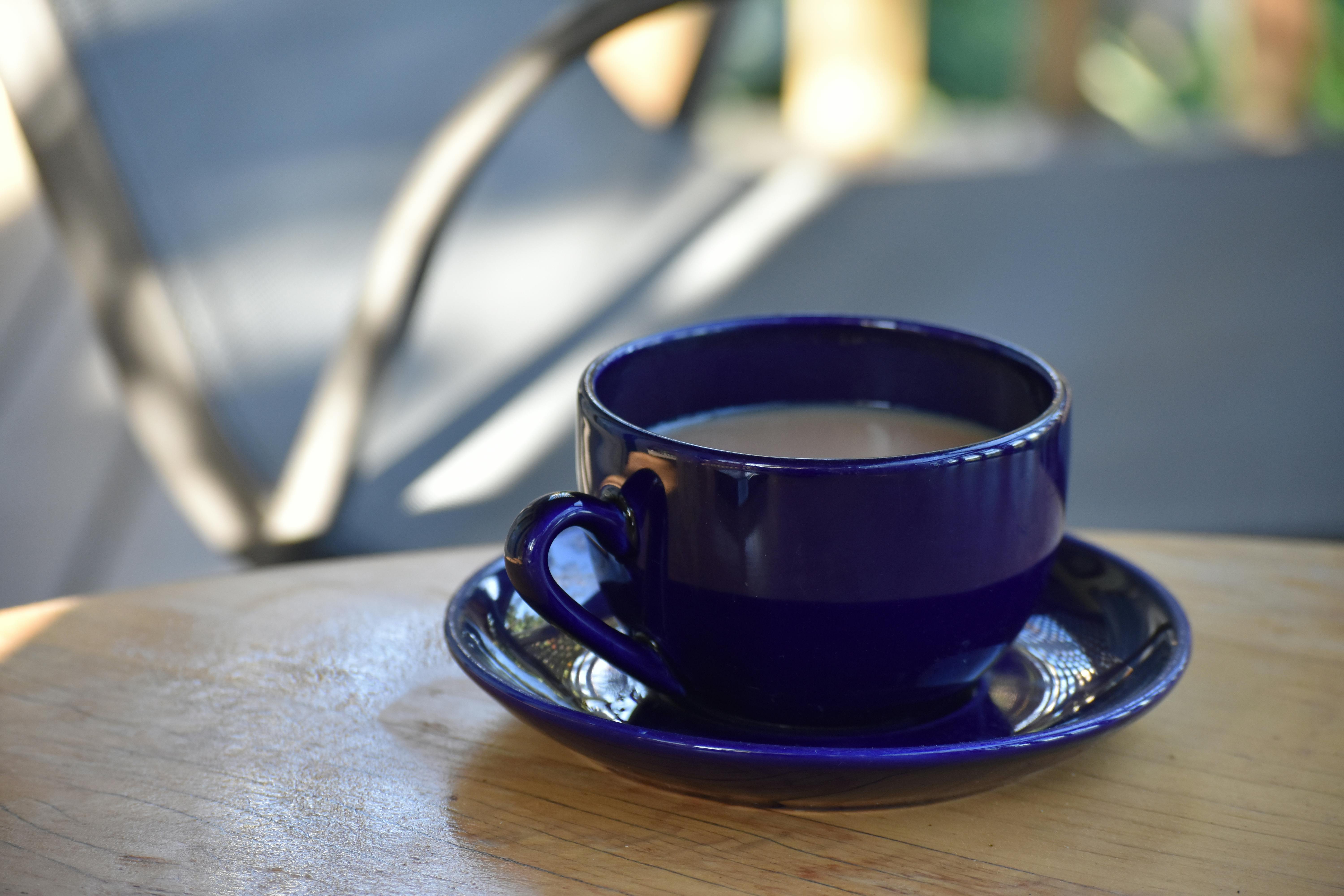Welcome to Unveiling the Truth: Does Tazo Passion Tea Contain Caffeine? In this article, we will be exploring whether or not Tazo Passion Tea contains caffeine. We will examine the ingredients, nutrition facts, and other sources to answer this question. So let’s get started and find out if Tazo Passion Tea has any caffeine in it.Yes, Tazo Passion Tea does contain caffeine. The amount of caffeine in a single tea bag of Tazo Passion Tea is approximately 24-48 mg.
Overview of Tazo Passion Tea
Tazo Passion Tea is a popular blend of herbal tea that is known for its exotic flavor and citrusy aroma. It is made from a combination of hibiscus, rose hips, orange peel, and lemongrass. The tea has a tart and tangy flavor with hints of spice that make it great for sipping any time of day. It also has a bright red hue that makes it visually appealing. Tazo Passion Tea is caffeine-free, making it the perfect choice for those looking to avoid the jitters or just relax at the end of the day. With its unique flavor profile and colorful appearance, it’s no wonder Tazo Passion Tea has become a staple in many households.
Tazo Passion Tea is available in convenient pre-packaged bags or as loose leaf tea that can be brewed with an infuser or strainer. For those who prefer to enjoy their tea cold, Tazo offers an iced version as well. The company also offers a variety of other teas, including green tea, chai tea, white tea, and oolong tea. Whether you are looking for something to sip on while relaxing at home or need something to perk you up during your morning commute, Tazo has you covered!
Caffeine in Tea
Tea is one of the most popular beverages around the world and is known for its health benefits. It is also a great source of caffeine, with just one cup containing around 40-100 milligrams of the stimulant. Caffeine can help to improve focus, alertness, and energy levels, but it can also have some negative effects on your health if consumed in excess. The amount of caffeine in tea varies depending on the type of tea and how it’s brewed. Black teas generally contain the most caffeine, while green teas usually contain less. Oolong and white teas tend to contain even less than green tea. The longer you steep your tea, the more caffeine it will have. Generally speaking, a cup of brewed black tea has about 40-60 milligrams of caffeine while green tea contains 25-30 milligrams per cup.
It’s important to note that decaffeinated teas still contain some caffeine – usually between 2-10 milligrams per cup – so if you’re sensitive to the stimulant or just want to avoid it altogether, look for products labeled “decaffeinated” or “caffeine free” when shopping for tea. Additionally, adding milk or sugar to your tea can also reduce the amount of caffeine you consume since they can bind with it and prevent it from being absorbed by your body.
To sum up, tea is a great source of caffeine that can provide a boost in energy and focus without overloading on other stimulants like coffee or energy drinks. However, it’s important to keep an eye on how much caffeine you’re consuming as too much can cause unpleasant side effects such as headaches, insomnia, irritability, and anxiety. Be sure to check labels carefully when shopping for tea and adjust brewing time accordingly if you want to control your intake more closely.
Types of Tea
Tea is one of the most popular beverages around the world. There are different types of tea with unique flavors and health benefits. The most commonly consumed teas include black tea, green tea, oolong tea, white tea, yellow tea, and herbal teas. Black tea is a strong-flavored type of tea made from the Camellia sinensis plant that has been oxidized. It is often blended with spices or fruits to give an extra flavor boost. Green tea is made from unoxidized leaves of the same plant and has a lighter flavor than black tea. Oolong teas are partially oxidized and have a slightly sweet taste that can vary from light to dark depending on the variety. White teas are minimally processed and have a light flavor with hints of floral notes. Yellow teas are similar to green teas but undergo a special process that gives them a unique flavor profile. Herbal teas are not technically considered “true” teas because they do not come from the Camellia sinensis plant but instead from other plants such as hibiscus, chamomile, or mint.
Caffeine Content
The caffeine content of different types of teas varies greatly depending on how it was processed and brewed. Generally speaking, black tea contains the highest amount of caffeine followed by oolong, green, white, and yellow in that order. Herbal teas typically contain no caffeine but there are some exceptions such as yerba mate which contains high levels of caffeine. The amount of caffeine in each cup will also depend on how it was brewed including water temperature and length of time it was steeped for. On average you can expect black tea to contain around 50mg per cup while green and white will contain around 25mg per cup.
Tazo Passion Tea
Tazo Passion Tea is a popular tea blend from the Tazo brand. It is made with a combination of hibiscus, orange peel, rose hips, and passion fruit flavors. The tea has a tart and fruity flavor and a deep red color. While it is often served as an iced tea, it can also be enjoyed as a hot tea as well. The caffeine content in this tea is relatively low, making it an ideal choice for those looking for a caffeine-free beverage. As far as health benefits go, Tazo Passion Tea is rich in antioxidants and contains vitamins A and C which help to boost immunity and protect against oxidative stress. Additionally, the hibiscus in the blend has been shown to reduce blood pressure levels and improve heart health. In terms of its classification, Tazo Passion Tea is considered to be an herbal tea since it does not contain any actual fruit pieces or extracts. However, because of its flavor profile derived from the combination of herbs and spices used to create this delicious blend, it could be argued that it could also qualify as a fruit tea.

Caffeine Content in Passion Tea
Passion tea is a popular herbal beverage that is known for its fruity and floral flavor. It is made from a combination of hibiscus, orange peel, lemongrass, and rose hips. While it does not contain caffeine, it does have some naturally occurring stimulants that can give you a slight boost of energy. The exact amount of caffeine in passion tea can vary depending on the type of tea and how it is prepared. Generally speaking, passion tea typically contains between 0-15 milligrams of caffeine per cup.
To make the most of your passion tea experience, it’s important to know what kind of caffeine content you’re dealing with. If you’re looking for a low-caffeine beverage, then passion tea can be a great choice as it contains less than one-tenth the amount found in coffee or black tea. On the other hand, if you’re looking for an energy boost then passion tea may not be the best option as its caffeine content is relatively low compared to other teas.
It’s also important to note that caffeine levels can vary greatly depending on how long the leaves are steeped in hot water. For example, if you steep your passion tea leaves for three minutes then you’ll likely get around 10-15 milligrams of caffeine in your cup. However, if you steep longer then that amount could increase significantly. So if you want to enjoy all the flavor and health benefits without getting too much of a jolt from the caffeine then be sure to watch your steeping time!
The Difference between Decaf and Herbal Teas
Decaf and herbal teas are two types of tea beverages that are quite different from each other. Decaffeinated tea is a type of tea that has had most of its caffeine removed, while herbal tea is an infusion of herbs, spices, and other plants that do not contain any caffeine.
Decaffeinated tea is made using the same process as regular tea, but the caffeine is removed using a chemical process. This leaves the flavor and aroma of the tea intact, while removing the stimulant effects of caffeine. As a result, decaffeinated teas can be enjoyed at any time of day without causing alertness or sleeplessness.
Herbal teas, on the other hand, are made from combinations of herbs, spices, and other plants. These plant-based ingredients do not contain any caffeine at all and therefore provide no stimulant effects. Herbal teas have been used for centuries to promote health and well-being by providing vitamins, minerals, antioxidants and other beneficial compounds. Herbal teas can be enjoyed hot or cold throughout the day or night without worrying about sleeplessness or alertness.
The primary difference between decaf and herbal teas lies in their composition; decaf teas contain some caffeine whereas herbal teas do not. Additionally, decaf teas are made from traditional tea leaves while herbal teas are made from combinations of plants that do not contain caffeine. Ultimately, both types of beverages can be enjoyed without worrying about experiencing alertness or sleeplessness due to their lack of caffeine content.
Studies on Tazo Passion Tea and Caffeine Content
Tea is one of the most popular beverages in the world, and one of the most popular teas is Tazo Passion Tea. It is a combination of hibiscus, orange peel, rose hips, and passionfruit flavors. The caffeine content of Tazo Passion Tea has been studied in various clinical studies. Studies have shown that it contains an average of 30 milligrams of caffeine per 8-ounce serving. This amount is comparable to other caffeinated beverages such as coffee and soda. In addition to the caffeine content, studies have found that Tazo Passion Tea also contains antioxidants such as polyphenols which can help protect against chronic diseases like cancer.
Studies have also looked into the effects of Tazo Passion Tea on cognitive performance. The results from these studies suggest that drinking Tazo Passion Tea can improve a person’s attention span and memory recall. Furthermore, some research has indicated that drinking Tazo Passion Tea can reduce fatigue and improve alertness. While more research needs to be done in this area, these preliminary findings are promising.
Overall, studies have shown that Tazo Passion Tea is a safe beverage with a moderate amount of caffeine that can provide health benefits such as improved cognitive performance and reduced fatigue. It can be consumed safely by most individuals without any adverse effects. For those looking to reduce their caffeine intake while still enjoying the benefits of tea, decaffeinated versions of Tazo Passion Tea are also available.

Conclusion
Tazo Passion Tea has been found to contain some level of caffeine. While the amount is not precise, based on the information from the Tazo website, it can be assumed that it does contain some level of caffeine. It may not be as much as other caffeinated beverages, but it still contains enough caffeine to give an energy boost.
Since caffeine can have a variety of negative effects on health, such as insomnia and headaches, those with sensitivity should limit their consumption of Tazo Passion Tea. Otherwise, drinking Tazo Passion Tea in moderation is likely safe for most people and can provide a refreshing drink that is not overloaded with caffeine.
